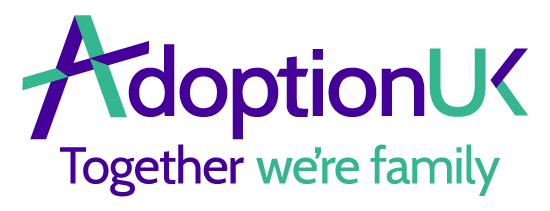Edited 17/02/2021
What types of issues do prospective adopters feel able to support?
Midge
January 4, 2015 22:00
This is something that I was mulling over recently after browsing Adoption Link's stats on prospective adopters waiting. What do prospective adopters see as the issues they can accept and support in children they hope to adopt? . Looking again at the stats this evening this is how they stack up Of almost 1300 available prospective families 94% feel able to support a child with attachment difficulties 93% behavioural difficulties 97% emotional difficulties 93% developmental delay 79% learning difficulties 72% SEN . 69% feel able to support a child with a visual impairment 73% a hearing impairment 50% a physical impairment 36% a mobility impairment 13% cerebral palsy 6% Down's Syndrome The 'other medical conditions' category suggests 88% will consider, but in fact 84% of those are only 'would discuss'. . So can this be interpreted in any way? At face value it looks like prospective adopters prefer the prospect of 'invisible' difficulties over the possibility of disability or medical issues. I wondered why this is? I don't think the invisibility is the issue per se. I wondered if prospective adopters view attachment difficulties/behavioural difficulties/emotional difficulties as something they can change, dare I venture to suggest, they can 'fix'? That with the right environment (their home), the right parents (themselves) and the right input (from theme]selves) they will make things better. I recall my supervising SW when I was fostering talking about an important part of the claiming process of adoption even pre-placement as seeing the child/ren as best placed with them and with them as the best parenting option for the child/ren even without knowing about any of the other options. It's the almost unshakable faith and optimism which I suspect is part and parcel of the whole process for adopters. Is this part of 'if this child comes to me I will make enough positive difference that we will be able to have a normal family life'? So why are the kids who have the diagnosed medical needs and known disabilities passed over by so many prospective adopters? As most of you know my AS was one of those medical needs toddlers who elicited less than a handful of responders to his CWW advert. Another child I was loosely involved with had a heart condition that would require surgery at some point and would take competitive team sports out of his options, and a lot of prospectives backed off from the group he was part of. It was in no way likely to be a life limiting condition, just one that would need some expert repair work when he was older. My perspective is that the kids with the diagnosed needs, esp health or disability needs, are more likely to come with some level of support from SS. There is also an established health system which they will already be enrolled in and probably have one or more health professionals involved in their care. There is more likely to be other accessible services, both state and NGO, directed to these children and the wider family and established communities of parents and families of children with specific conditions and needs. I'm not implying that all these services are easily accessed or provide everything at the drop of a hat; they don't, BUT the systems are more established and the conditions considered a recognised need, much more so than most of the attachment/behavioural/emotional stuff. The CP stat shocked me! CP can be a relatively mild condition. Many children are perfectly intellectually able and lead very normal lives, they just have some mobility issues or flexibility issues. Are we still so blinkered by physical disabilty? Or do prospective adopters not see these children fitting into their lives as they assume a child with the less visible issues might? Again is this about perceived 'fixability' of issues, and of course medical issues and physical impairments are likely to be permanent. Is it that people want kids who will grow up and become independent and kids with disabilities might not? Is it the strive for the family that is as close to what they would have hope for biologically, and that adopting a child with disabilities or medical needs would mean closing the door on that as a possibility? I don't know, I'm just thinking aloud. . I may be totally over simplifying things, but I have been pondering this on and off. My post is not intended to inflame, accuse or make people feel bad in anyway. . I also wonder if those experienced adopters who may themselves have thought this way many years ago, have changed they view in any way. With the benefit of hindsight would you have set your 'yes, no, will discuss' criteria differently knowing what you know now? . For myself I think if I ever dabbled in fostering again it would be as specialist respite care for children with very significant medical needs. OK so I've trained as a paed nurse since I fostered and adopted and now have the requisite skills and insight, but I wonder if that would actually be a much more straightforward proposition, and far better supported than more generalised fostering would ever be. . Look forward to hearing people's comments and perspectives
shadow
January 5, 2015 10:41
I said I could only manage mild behavioural issues- but was fine with learning disabilities and medical conditions - guess what happened........
Edited 17/02/2021
BermudaBlue
January 5, 2015 17:43
But it's all very much more complicated, as you don't just get a child who has one or two of the things on the list. So the deaf child who needs adopting may also have been severely neglected; the child with a severe learning disability may have been sexually abused; the child with epilepsy may have been physically and emotionally abused. We opted for known disabilities, and inadvertently took on a child with major attachment and emotional issues on top of what we knew about. And third time we opted for a child with a known disability and also severe attachment issues...and that wasn't the half of it...we ended up with something we said we would prefer to avoid...
Edited 17/02/2021
squeak
January 5, 2015 18:18
Or could it be that most prospective adopters know (at least theoretically) that adopted children are very very likely to have attachment, behavioural or emotional difficulties, therefore saying that you couldn't accept a child with these issues is tantamount to saying you don't want to adopt?
Edited 17/02/2021
chocoholic
January 5, 2015 18:31
I think squeak is maybe on the right lines here... maybe prospective adopters are making the assumption that most adopted children will have some degree of emotional, behavioural issues, so it might feel just overwhelming to deliberately take on physical / medical conditions as well. Especially if you have little or no idea of what it might entail. I also think most adopters, although accepting they will face challenges, not unreasonably hope their children will eventually grow to some kind of independence, so the prospect of parenting a child with a lifelong condition is again overwhelming. If this is the case, isn't it a case of better communication needed from social workers to explain the boundaries / limits expected for each child - or the lack of these, when a condition is actually not as severely limiting as it might appear on paper?
Edited 17/02/2021
Donatella
January 5, 2015 18:42
And maybe if you say yes to certain conditions social care will, at the time, outline the package of support that comes with it?
Edited 17/02/2021
silver birch
January 6, 2015 11:55
I agree with Flosskirk in that I think there are many "normal" children suffering low levels of neglect but because they are meeting their milestones they will not enter the care system. When you have a child with additional health needs parents have to go the extra mile to meet these needs and sometimes dysfunctional families are unable to do this, so the children are more likely to enter the care system quicker. My son was diagnosed with ADHD several years after he was placed with us, and I often wonder if his behaviour as a toddler played a part in the treatment he received from his birth mother. His sister was treated like a princess, but he suffered emotional abuse. He also had severe asthma, having a mum who chain smoked in front of him and rarely gave him his medication did not help. My choices regarding the children I would accept where mostly down to personal experience. I discounted moderate/server learning difficulties as I had an aunt with moderate LD and epilepsy, who went on to develop mental health problems and cause no end of problems. I was willing to consider children with physical health problems (I work in physical health). RAD, disorganised attachment and alcoholic BM were out due to advice from a relative who has worked in a child placement team for many years. When we were linked with our children I asked the social worker if she thought my son had ADHD( I did not want a child with ADHD) she said no he was just making the most of his freedom after been fastened in his buggy all the time. My sons asthma disappeared about 18 months into placement, he is no longer on inhalers, and did very well in a recent schools cross country competition. My youngest daughter had a physical condition that needed daily therapy and probably surgery later. At the age of 7 she has been dicharged from the hospital and is unlikely to need any surgery.
Edited 17/02/2021
Milliemoo1
January 14, 2015 17:41
We were only approved 18 months ago but we never had a tick box like that to complete. We had seen and read them on the internet and really struggled to see their purpose. There is no point saying you won't accept a child with say, a heart condition, unless you know what that means. Does it mean the child has a life expectancy of 10 years or does it mean the child will just need medication and monitoring? Two completely different scenarios. We said all along that we wanted to be parents, not carers and as we are not getting any younger, kids that would eventually be able to lead an independant life. We are hopeful that our kids will turn out fine. Our son came with a SEN and both have speech and language difficulties but we see massive improvements in them all the time and the changes in them in the last year have been incredible. We know that lots of couples turned them down as they thought they had too many issues!! To be honest, our biggest worry is that our son will be a wife beater like his birth dad. He can be violent and certainly when he came to us had funny ideas about women. Overtime, he has changed his views and has lots of strong female role models. But his controlling personality with his violence does worry me for the future. I gave a talk yesterday to prospective adopters at their prep groups. A lot were very worried about panel......I had to politely tell them that was the least of their worries!
Edited 17/02/2021
Archived
This topic is archived. New posts are not allowed.

